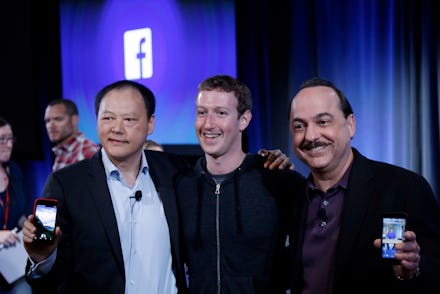Silicon Valley Has a "Bro Culture" Problem, But It Can Still Be Good For Women

What happens —when tech comes to D.C.? There’s a lot of excitement about Ro Khanna, the Silicon Valley entrepreneur who is running for Congress next year. He’s hired campaign managers from Barack Obama’s 2012 reelection campaign. Salon columnist Andrew Leonard writes, “What might be most intriguing about Khanna is how he reflects Silicon Valley’s image of itself. With ample evidence that government is broken, the Valley wants someone in Congress who believes that politics is as amenable to fixing as a start-up’s busted business plan. If you think of Ro Khanna as the representative of an impatient group of investors who demand better performance for their tax dollar, you won’t be far off. The venture capitalists want to bring in a new CEO.”
But will women be adequately represented if Ro Khanna wins? Even though Silicon Valley has faced controversy over its sexist "bro culture," there are some benefits that Washington could get from the tech world.
One of the problems caused by the underrepresentation of women Silicon Valley is the creation of “bro culture.” And this sexism is something that bothers both men and women. Guys who aren’t bros find themselves alienated. “I’m not a bro kind of guy. It pisses me off,” says Samuel Chang, Stanford alumnus and startup engineer, about “the bro culture of drugs, money, and electronic dance music.”
The “bro culture” may stem from the fact that there aren’t enough women in the tech world. Causes of underrepresentation include family and career conflicts, sexism, socially-constructed academic barriers, and gender norms that discourage women from entering science and technology fields. The controversy Larry Summers elicited when he suggested differences in aptitude between men and women was one of the factors that led him to step down as president of Harvard.
Women in the technology industry contribute to the restructuring of power by serving as role models for other women in tech: Sheryl Sandberg in her book Lean In shows us that when there are women, there are more role models for women. For example, when she was working at a tech company before Facebook, she needed parking for pregnant women and changed the status quo to get it offered at her company.
I contend that the "bro culture" in tech does not lead to overt sexism: in fact, the tech and startup culture helps women enter fields they wouldn't traditionally work in. There is a need for personality diversity and an eye for consumer products geared towards women, such as grocery iPhone apps, smart laundromats, and high-tech involvement in childcare.
But if the nerds in California feel alienated, they actively court women to participate in alternative social events. I know firsthand - I spent a summer interning at the Santa Clara District Attorney's Office when I was 26. I joined a Stanford Bible study with a skewed gender ratio and was constantly invited to keep attending in order to balance out the gender inequity. I enjoyed the hospitality of the “bros.”
Does the bro culture lead to overt sexism? Not really. Could the move of tech to D.C. mean women wield less power in government? I would argue no, because both tech and government centers are becoming more female and progressively more receptive to our needs. The 113th Congress has 20 female Senators, the highest number in history. Although the tech world needs more female representation to see more women in power, there’s a natural progression of power that is improving over time.
For now, ladies? Remember that San Jose, California is nicknamed Man Jose for a reason: this center of the tech world needs more women, but the "bros" are pretty good about inviting the "hos" over for dinner.